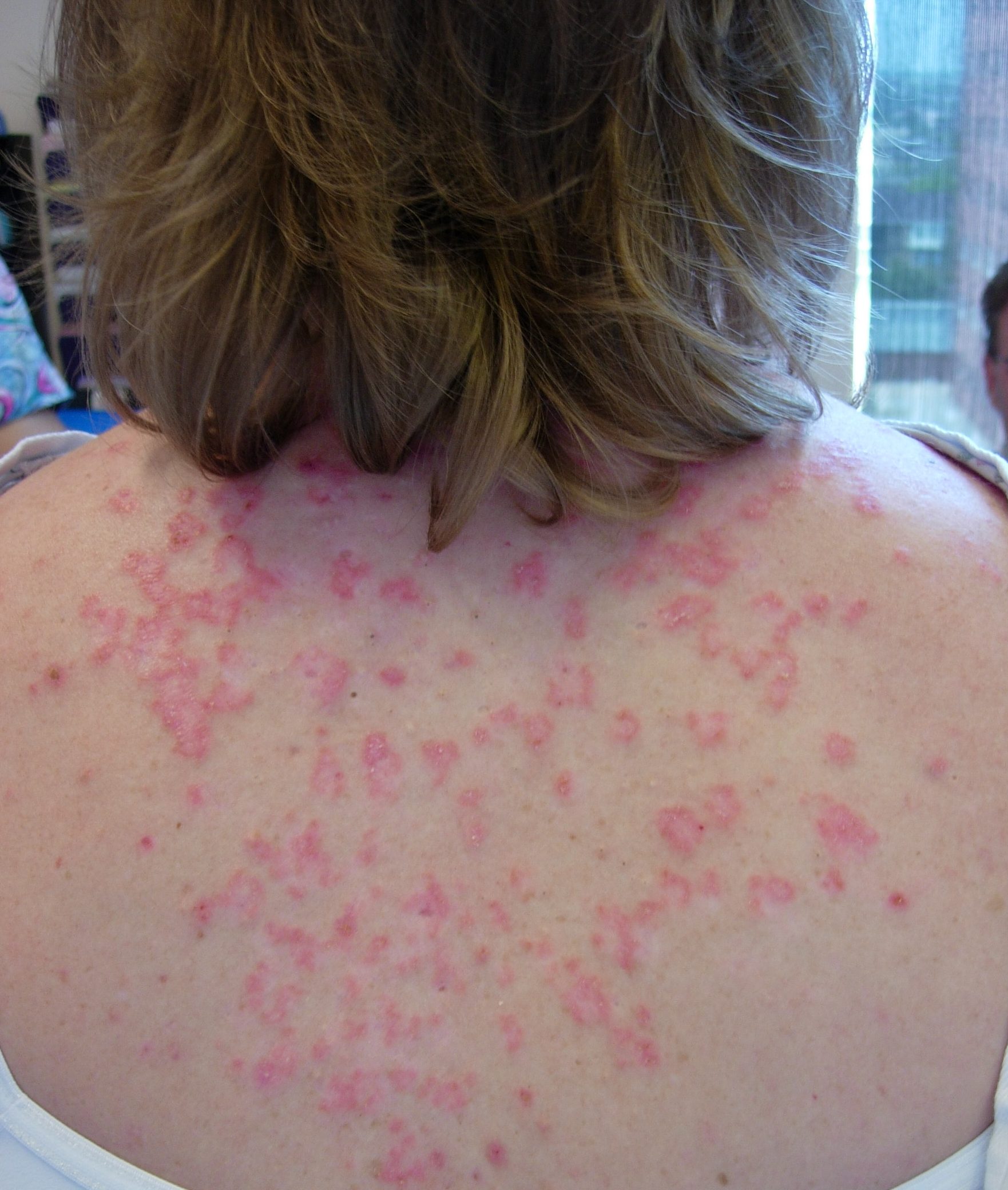 Lupus is an autoimmune disease that causes the immune system to attack the body’s tissue and organs. Subacute Cutaneous Lupus Erythematosus (SCLE) is a particular form of lupus that affects the skin, causing red, itchy rashes.
Lupus is an autoimmune disease that causes the immune system to attack the body’s tissue and organs. Subacute Cutaneous Lupus Erythematosus (SCLE) is a particular form of lupus that affects the skin, causing red, itchy rashes.
This particular type of lupus can have 2 common manifestations:
“One type begins with red, pimple-like bumps on the skin and can develop into red, scaly lesions that resemble psoriasis,” says Dr. Kellie Reed, dermatologist and autoimmune specialist in Austin, Texas. “The body parts affected are the arms, shoulders, neck, trunk and occasionally on the face. These rashes cause moderate to severe itching that worsens with sun exposure.
The second type consists of annular lesions (flat, circular lesions with red outline). “These can appear on the face, neck, back, arms, and chest,” says Dr. Reed. Moderate to severe itching can occur and can worsen with sun exposure. “Scarring and/or de-pigmentation can also develop as these skin lesions heal.”
SCLE is more common in woman than men and usually occurs between the ages of 20 and 45. Individuals of all ethnic groups can be affected by SCLE. Cutaneous (skin) lupus often occurs in conjunction with systemic lupus but can also occur on its own.
While there is no cure for SCLE, there are ways to treat and prevent symptoms. Steroid cream or gel or other topical ointments are the most common treatments for SCLE. Sometimes, the steroids can be injected directly into the lesions. Retinoids or other immunosuppressant medications may be offered by some physicians if there is no response from topical options. “Everybody should always wear a strong SPF to protect their skin from ultraviolet light,” advised Dr. Reed, “but it is especially important for those with SCLE because of their photosensitivity.”
Contact Us
For more information on SCLE, contact Sanova Dermatology to discuss in more detail with our expert dermatologist.
About Dr. Reed
 Dr. Kellie Reed specializes in medical dermatology. She has a specific interest in autoimmune and rheumatologic skin diseases, including lupus, psoriasis, and pemphigus vulgaris. She performs a variety of cosmetic and dermatologic surgical procedures. Book your appointment with Dr. Reed today!
Dr. Kellie Reed specializes in medical dermatology. She has a specific interest in autoimmune and rheumatologic skin diseases, including lupus, psoriasis, and pemphigus vulgaris. She performs a variety of cosmetic and dermatologic surgical procedures. Book your appointment with Dr. Reed today!
